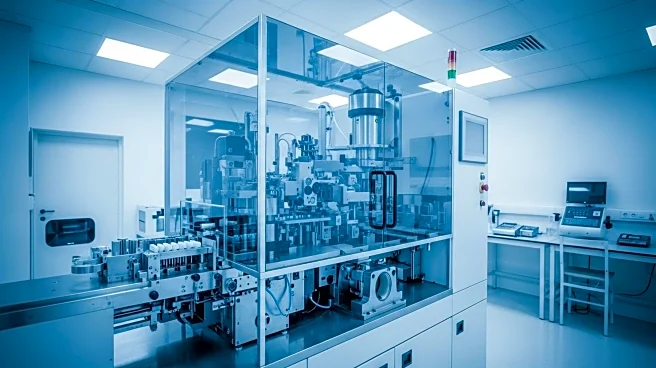What's Happening?
President Trump announced that starting October 1, imported branded or patented pharmaceutical products will face a 100% tariff unless their manufacturers establish production facilities in the United States. This policy aims to enhance domestic production and secure supply chains for essential medicines. The administration's strategy is to pressure pharmaceutical companies to relocate manufacturing to the U.S., thereby increasing national autonomy in the sector. While some companies, like Eli Lilly, have announced significant investments in U.S. production, experts remain skeptical about the tariffs' ability to lower consumer prices or significantly impact the market, given the global nature of pharmaceutical supply chains.
Why It's Important?
The imposition of tariffs on imported branded drugs is a significant move in the Trump administration's broader trade policy, which seeks to bolster domestic industries and reduce reliance on foreign suppliers. This policy could lead to increased drug prices and affect availability in the short term, impacting consumers and healthcare providers. However, it also presents opportunities for U.S. pharmaceutical companies to expand operations and potentially create jobs. The policy's success will depend on the ability of companies to establish production facilities and the government's management of trade relations with key partners like the EU and Japan.
What's Next?
The U.S. government plans to publish further findings from a national-security investigation into drug imports, which could lead to additional tariff measures. President Trump has not ruled out increasing tariffs to 250% and adjusting them over time. Companies currently building or planning to build factories in the U.S. will be exempt from tariffs on specific products until construction is completed. The administration's commitment to a 15% tariff cap under agreements with the EU and Japan will be maintained, ensuring some stability in international trade relations.
Beyond the Headlines
The tariffs on branded drugs highlight the administration's focus on national security and economic independence. This policy could reshape the global pharmaceutical industry, with potential shifts in investment and production strategies. The exemption for India, due to its focus on generic drugs, underscores the complexity of international trade dynamics and the importance of generics in the U.S. market. The long-term impact of these tariffs will depend on the balance between domestic production incentives and international trade relations.








